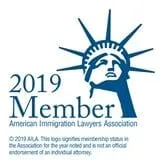- posted: Feb. 13, 2014
When I got this call from a young factory worker I wasn’t surprised. We’ve all heard the stories about politicians and celebrities getting into trouble over inappropriate tweets, but when I listened to her story, I realized it was different. Her posts were not sexually inappropriate or politically incorrect, quite the opposite.
Like many young people these days, this young lady (I’ll call her Kate) was using Twitter as a tool to organize support for a cause. Specifically, she was using Twitter to rally her co-workers to protest a new policy implemented by her employer (I’ll call them ABC Company).
Kate and her co-workers worked on an assembly line. It is a fast paced and physically demanding job. Each day there was a production quota and the employer wanted to increase the quota without hiring more employees. In order to accomplish this goal the employer decided to prohibit employees from talking to one another while they were working on the line: Less talk, more work.
Kate felt this policy was unfair and made the work environment intolerable. She also believed that she and her co-workers deserved to be paid more if the employer expected them to work harder and produce more parts. She wanted to go to management with her concerns, but she didn’t want to go alone. Unfortunately, because of the new policy, she couldn’t get much feedback from her co-workers, so she turned to Twitter.
Her tweet (which she posted on her own time) went something like this: “#whatever happened to free speech? Shout out to all my ABC company co-workers, what do you all think about the new NO TALKING policy?”
Many of Kate’s co-workers responded agreeing that the new policy was unfair and made them feel like children. For example: “#back in kindergarten” and “#sucks!” Kate went on to propose that they take their complaints to management and ask for a raise if management wouldn’t change the policy. Only a couple of her co-workers agreed to join Kate in her complaint.
Within a week of her first tweet, Kate was called into Human Resources and confronted about her posts. She learned that her employer had a policy against employees casting the company in a bad light in the media. To Kate’s surprise, the employer viewed her social media posts as a violation of this policy and she was fired for hurting her employer’s business reputation.
When Kate called she wanted to know if she could sue ABC for violation of her right to free speech. The answer: “No.” The Constitution prohibits the government from restricting free speech, but Kate didn’t work for the government.
However, she did have a legal claim. You see, terminating Kate under these circumstances was a violation of her rights under the National Labor Relations Act (“NLRA”). Kate and her co-workers had a right to engage in “protected concerted activity” and terminating Kate under the circumstances described above was a violation of the law.
The NLRA is the law that permits employees to join and form labor unions, but it’s more than that. It also gives employees the right to organize on their own behalf – for mutual aid and support. Employers cannot forbid employees from discussing terms and conditions of employment and certainly cannot forbid efforts to initiate group action.
Kate did not use a company computer or cell phone to post her tweet and did not tweet while she was on the clock. Her communication to her co-workers fell squarely within the protections of the NLRA.
Kate’s next step was to file an unfair labor practice charge against ABC. Unfair labor practice charges are filed with the National Labor Relations Board and must be filed within six months of the violation. If the Board’s investigation reveals that the employer violated the law, the employer can be ordered to reinstate the employee, pay back wages and restore benefits, among other things.
A word of caution: It is never a good idea to defame your employer on line! Not all speech is protected by the NLRA. Kate did not use foul language and she did not intend to hurt her employer's business. If you have questions about your rights under the NLRA call us or go to:



